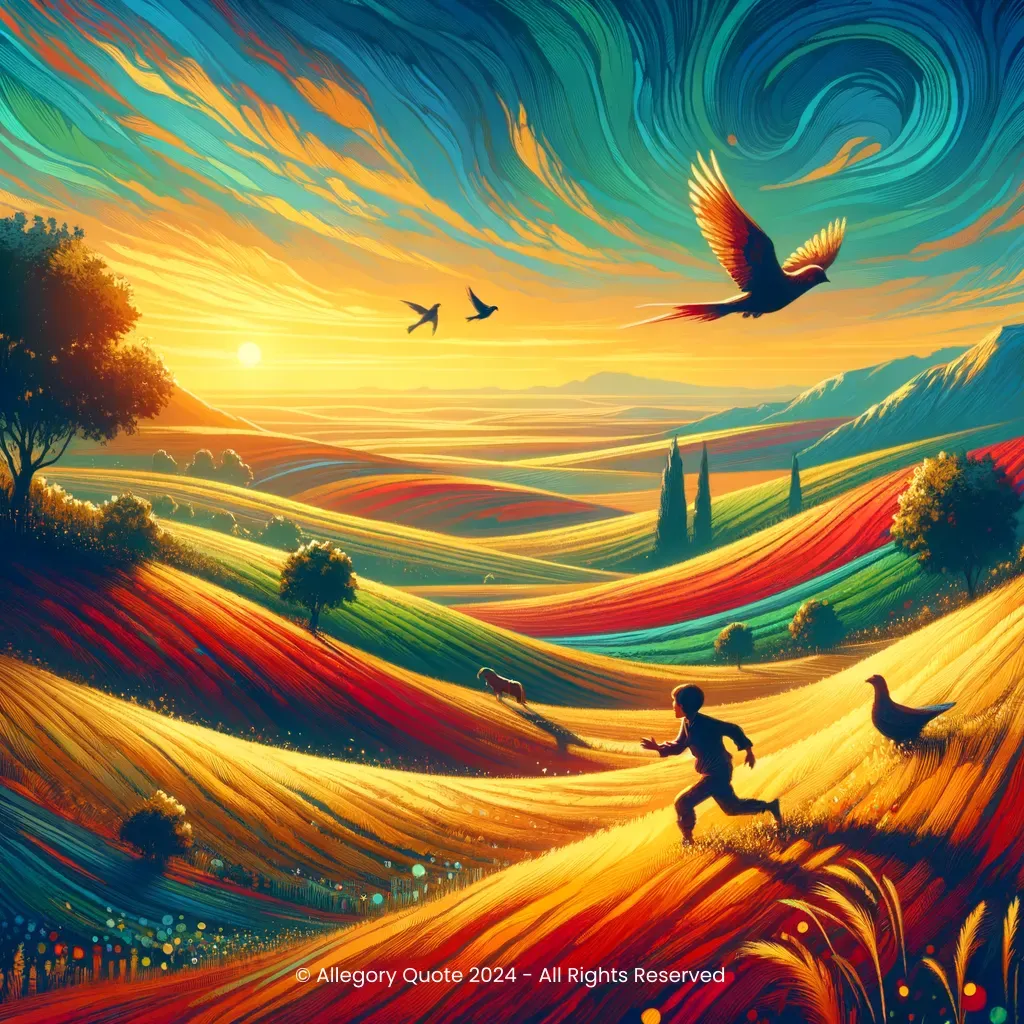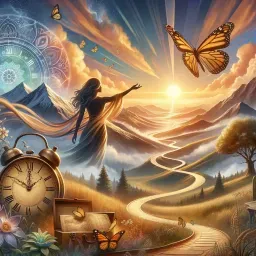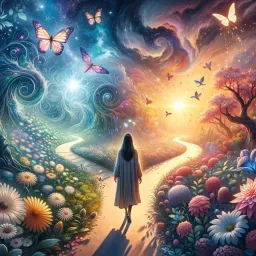”There’s a great big hunk of world
down there with no fence around it“

0
0
0
0
- Meaning
- The phrase expresses a philosophical notion of freedom and the idea that life offers limitless opportunities. Psychologically, it can represent the human desire for exploration, adventure, and personal growth. Historically, this phrase captures the post-World War II era's sentiment of hopefulness and expansion in American culture, where individuals were encouraged to pursue their dreams without constraints.
- Allegory
- The elements in the allegorical image, such as the vast open landscape and the horizon, represent the boundless opportunities that lie in front of us. The birds in flight symbolize freedom and the ability to transcend limitations, while the child playing represents curiosity and the eagerness to explore the world. The warm colors convey an emotional essence of hope and the promise of new adventures, encouraging viewers to embrace life's possibilities.
- Applicability
- This phrase can inspire individuals to step out of their comfort zones, embrace new experiences, and recognize that life is full of possibilities waiting to be explored. It encourages a mindset focused on opportunity rather than limitation, prompting people to consider all the paths available to them.
- Impact
- The impact of this phrase is significant in cultural contexts as it inspires a sense of adventure and the importance of taking risks in life. It resonates with audiences familiar with the themes from "South Pacific," contributing to discussions on freedom and exploring the world. The phrase encapsulates a spirit of optimism that encourages people to think big and explore life's possibilities.
- Historical Context
- The phrase likely originated in the mid-20th century, during the time when "South Pacific" was produced, specifically around 1949. This period correlated with a post-war sentiment in America, representing hope and the pursuit of happiness amidst societal rebuilding and change.
- Criticisms
- There may be criticisms regarding the simplicity of this phrase, as some might argue that not everyone has the privilege or means to explore the world freely. Additionally, criticisms could center on the notion that the world isn't entirely open to all, due to socio-political constraints, economic limitations, or personal circumstances. Counterarguments often emphasize the personal agency one has to create opportunities regardless of external constraints.
- Variations
- Variations of this phrase exist in various cultures, often emphasizing concepts of freedom and opportunity. For example, in some Eastern philosophies, the idea of expanding one's horizons is common, though it may be framed around spiritual journeying rather than physical exploration. This cross-cultural interpretation promotes respect for varied perspectives on freedom and opportunity.
-

Take her to the moon for me.
-

I think it’s time for a new adventure.
-

Anyone can cook, but only the fearless can be great.
-

Seize your moment.
-

Always be yourself. Unless you can be Batman, then always be Batman.
-

You’re gonna see it’s our destiny.
-

There’s magic in the air tonight, and anything can happen.
-

Every adventure requires a first step.
-

If the goal to achieve is happiness, the journey is always worthwhile.
-

No matter how your heart is grieving, if you keep on believing, the dream that you wish will come true.
No Comments